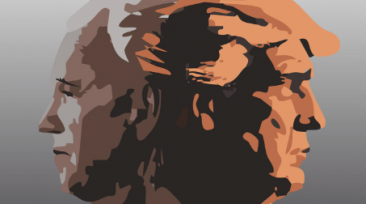Coming soon, the GEAB Bulletin 182. Discover its exclusive content!

Urban Utopias – What if They Came True?
Certainly, the definition of a utopia inherently carries the unattainable, the fanciful, the transcendence of dreams. However, when we look at examples of urban utopias today – embedded in megaprojects such as Neom and The Line (Saudi Arabia), Nusantara (Indonesia), the New Administrative Capital of Egypt with Praxis, a city project in the middle of the Mediterranean, and even Satoshi Island in Vanuatu, spearheaded by figures from American tech and crypto – the endless and still undefined technological possibilities offered by AI, coupled with the monumental funding provided by new crypto technologies (the amounts of which we may not even realise), prompt us to ask: “What if they atually came true?”
The future city projects we describe in this February issue speak volumes about our present, but more importantly, they reveal the visions, ambitions and actors driving different regions of the world, with varying approaches to democracy. While predominantly located in BRICS+ or Global South countries, their architects are often Western, even as investments come largely from the multipolar crypto sphere and China.
Furthermore, we investigate the new investment strategies of Chinese capital refocusing on North Africa and the Middle East. This shift is primarily channeled through Egypt, a new BRICS+ member, allowing the country to assert its influence in one of the pivotal hubs of commerce and international relations. All of this unfolds in a changing world.
In Europe, concepts of frugality and degrowth are most openly expressed, aligning with a region struggling to reinvent itself amidst a series of crises and poor strategic choices. This time, we focus particularly on Germany, once a flagship of Europe, but now facing the rise of populist parties and economic challenges, with close financial ties to China seen as an opportunity rather than a hindrance.
Transformation pathways, however, find significant outlets on the old continent, such as the change of healthcare systems largely through telemedicine. We explore this through an interview with Philip Choban, CEO of Telios, a pioneering company in this field in Eastern Europe.
And as tradition dictates, you will find our investments, trends and recommendations at the end of the bulletin.
A detailed summary of the GEAB 182:
- Editorial
- Cities of the future: New Ambitions, New Players
- Chinese Investments in Egypt, North Africa and the Middle East: Growing Influence in the Global Geopolitical Centre
- Short trends in a changing world (Gaza, American counteroffensive against de-dollarisation, …)
- Germany 2024-2025: In need of re-inventing its economic model
- Eyes on the future – Philip Choban: “Revolutionising healthcare: AI shaping a new economic frontier in telemedicine”
- Investment recommendations
Not yet subscribed to the GEAB bulletin? Subscribe now



Comments